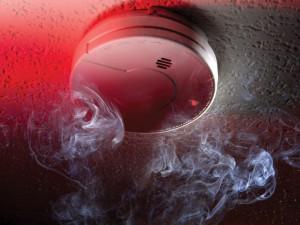 It seems that the nightly news carries coverage of at least one home fire a week during the winter months.
It seems that the nightly news carries coverage of at least one home fire a week during the winter months.
It may be a good time to share this fire safety message from the US Fire Safety Administration with your family members.
Bedroom Fires
Each year, fire claims the lives of 3,400 Americans and injures approximately 17,500. Bedrooms are a common area of fire origin. Nearly 600 lives are lost to fires that start in bedrooms.
Many of these fires are caused by misuse or poor maintenance of electrical devices, such as overloading extension cords or using portable space heaters too close to combustibles. Many other bedroom fires are caused by children who play with matches and lighters, careless smoking among adults, and arson.
The United States Fire Administration (USFA) and the Sleep Products Safety Council (SPSC) would like you to know that there are simple steps you can take to prevent the loss of life and property resulting from bedroom fires.
Kids and Fire: A Bad Match
Children are one of the highest risk groups for deaths in residential fires. At home, children usually play with fire – lighters, matches and other ignitables – in bedrooms, in closets, and under beds. These are “secret” places where there are a lot of things that catch fire easily.
- Children of all ages set over 35,000 fires annually.
- Every year over 400 children nine years and younger die in home fires.
- Keep matches and lighters locked up and away from children. Check under beds and in closets for burnt matches, evidence your child may be playing with matches.
- Teach your child that fire is a tool, not a toy.
Appliances Need Special Attention
Bedrooms are the most common room in the home where electrical fires start. Electrical fires are a special concern during winter months which call for more indoor activities and increases in lighting, heating, and appliance use.
- Do not trap electric cords against walls where heat can build up.
- Take extra care when using portable heaters. Keep bedding, clothes, curtains and other combustible items at least three feet away from space heaters.
- Only use lab-approved electric blankets and warmers. Check to make sure the cords are not frayed.
Tuck Yourself In For A Safe Sleep
- Never smoke in bed.
- Replace mattresses made before the 2007 Federal Mattress Flammability Standard. Mattresses made since then are required by law to be safer.


